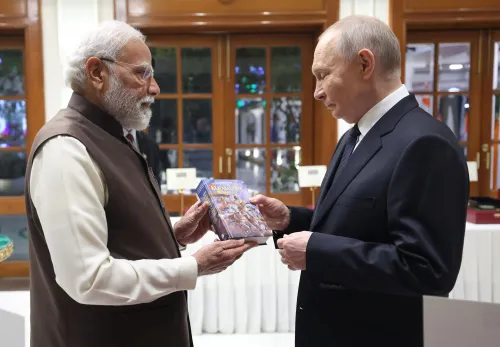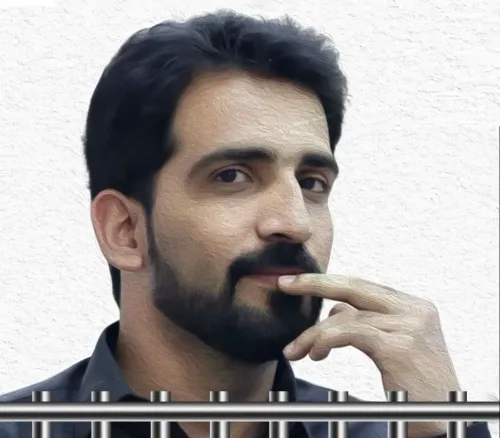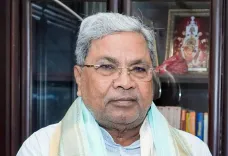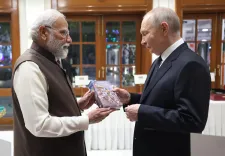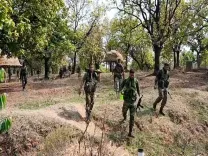Is Pakistan's Real Power Center Asim Munir's Military Rule in Civilians' Clothing?
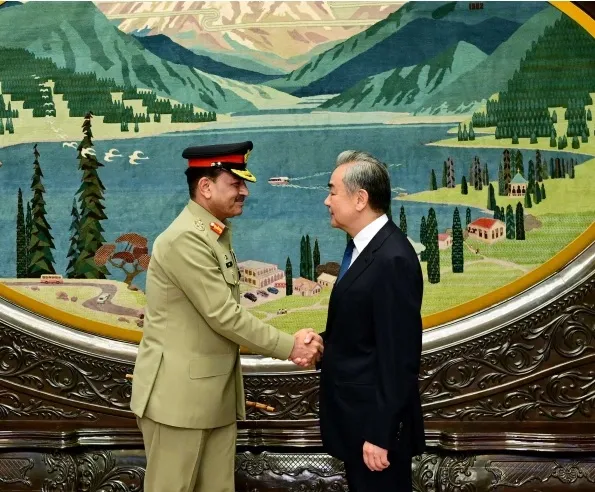
Synopsis
Key Takeaways
- Asim Munir's influence extends beyond military matters into political governance.
- Military encroachment affects democratic processes and civil rights.
- There is a notable shift in foreign policy dynamics under Munir's leadership.
- Increased military budget allocations occur amid social sector cuts.
- Concerns rise over the implications of military-led governance on national security.
Islamabad: As Field Marshal Asim Munir concluded yet another significant visit to China, Pakistan's vital "iron brother", it sends a clear signal to both local and international audiences that Pakistan's foremost General is more than just the Chief of Army Staff. He embodies the nation's de facto head of state, foreign minister, and economic planner within one military uniform.
From Beijing to Washington, Asim Munir has solidified his position as Pakistan's most prominent representative on the global stage. This marks a distinct shift from previous practices, where diplomatic relations were primarily managed by civilian leaders; Munir routinely interacts with world leaders and key ministers.
In June, he was welcomed in Washington with a level of protocol typically reserved for Presidents, including a formal luncheon hosted by US President Donald Trump. His July 25 visit to Beijing also underscored this trend. He met with Chinese Vice President Han Zheng, Foreign Minister Wang Yi, and high-ranking officials from the People's Liberation Army, discussing topics ranging from regional security to the future of the China-Pakistan Economic Corridor (CPEC), as stated by the Pakistan Army’s Inter-Services Public Relations (ISPR).
This engagement with Washington and Beijing, Pakistan's chief external "allies", seems to have effectively overshadowed the civilian administration of Shehbaz Sharif in both style and substance. In both cities, Munir is recognized as the genuine negotiator, reflecting the extent to which Pakistan’s military has encroached into sectors typically overseen by elected officials.
Asim Munir's robust diplomacy abroad illustrates only one aspect of a broader consolidation of power at home, propelling Pakistan into what can be characterized as military-led "hybrid authoritarianism". Beneath the civilian exterior, the military establishment has maneuvered all institutional mechanisms to dominate the judiciary, economy, and legislative processes.
A stark illustration of this is the military's appropriation of vast expanses of agricultural land in Punjab and Sindh under the pretext of "national development" in 2023. Under Munir’s leadership, thousands of acres of government land have been designated for agricultural use by active and retired officers, all in the name of purported food security. This extensive land acquisition, supported by compliant bureaucracies and judicial processes, adds to the over 12 million acres already controlled by the armed forces.
Meanwhile, Pakistan's economic crisis has severely affected foreign exchange reserves, yet the military’s financial apparatus remains intact. Military-run business conglomerates such as Fauji Foundation, Shaheen Foundation, Bahria Foundation, and Army Welfare Trust (AWT) continue to prosper without tax liabilities or governmental oversight. Concurrently, there has been a dramatic increase in defense budget allocations, including a 20% rise for 2025, announced in June, even as crucial sectors like health and education face significant budget cuts in the name of austerity.
All these developments have been facilitated by legal modifications and constitutional manipulations. Laws such as the Pakistan Army Act and the Official Secrets Act have been weaponized through amendments to suppress dissent. This has enabled the government to prosecute hundreds of civilians, including opposition activists and journalists, through military courts following the violent anti-government protests of May 9, 2023.
Furthermore, Asim Munir has intensified the strategic placement of military personnel in civilian agencies such as the Water and Power Development Authority (WAPDA) and the National Database and Registration Agency (NADRA), among many others. This intrusion into civilian affairs guarantees that the military establishment influences every aspect of the country’s governance framework. The growing opacity and unchecked power have tangible consequences.
Perhaps the most telling indictment of Asim Munir’s leadership is not simply the breadth of his ambition, but the toll it has taken. Munir may be remembered as the army chief who lost hundreds of soldiers to insurgent actions within just two years of his command. From Balochistan to the tribal regions of Khyber Pakhtunkhwa (KPK), Pakistani forces have faced relentless attacks from a resurgent insurgency, particularly from groups like the Balochistan Liberation Army (BLA) and Tehreek-e-Taliban Pakistan (TTP).
In June, over a dozen soldiers perished in a single incident in North Waziristan, with the TTP claiming responsibility. The atmosphere in Pakistan has become such that no one dares to question why the army was caught off guard; the answer lies in the misplaced priorities of its leadership. Consequently, intelligence failures and overstretched resources redirected towards political maneuvering have left national security increasingly vulnerable.
Munir’s focus has evidently shifted from commanding the army to governing the nation. His fixation on political management, from orchestrating elections to fostering defections and appointing compliant judges, has permitted militant organizations to regroup and launch attacks with impunity.
The ramifications of this military overreach are far from abstract. Today, Pakistan is ensnared in economic stagnation, political turmoil, and social oppression. The elected government under Shehbaz Sharif of the Pakistan Muslim League-Nawaz (PML-N) serves little purpose beyond legitimizing decisions dictated from Rawalpindi. Even the civilian cabinet has acknowledged, as reflected in Defence Minister Khwaja Asif’s recent remarks, that policy decisions are made in collaboration with the military establishment.
This reality is not novel in Pakistan, where the military has historically operated as a shadow power. However, under Asim Munir, that shadow has stepped into the limelight. Unlike his predecessors, such as General Qamar Bajwa, who preferred to operate behind the scenes, Field Marshal Munir appears unashamedly central to governance. He engages in investment conferences, briefs ambassadors, and comments on fiscal policy, responsibilities that fall well outside the scope of a military officer.
This overt dominance is further exacerbated by a climate of surveillance, censorship, and intimidation. Media outlets have been silenced for broadcasting dissenting opinions, with numerous journalists arrested or forced into exile over the past two years.
Asim Munir’s Pakistan is a place where the constitution is interpreted through a military lens, where democracy is performed but not genuinely enacted, and where questioning the army could cost one their freedom. The military establishment’s interests have expanded from national defense to national supremacy, with Munir as their most visible representation. The degradation of civil institutions, the repression of dissent, and the neglect of core military responsibilities illustrate not just overreach but signify a deeper rot.
As Pakistan’s soldiers continue to fall in the remote regions of Balochistan and KPK while their chief pursues diplomatic photo opportunities, one must ponder: Who truly governs Pakistan? And for how much longer can a nation endure when its Generals abandon their duty to safeguard the borders and instead take the reins of governance?


